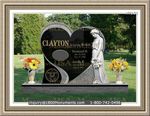|
Exploring Basic Details Of Jewish Funeral Services
Just like all communities, Jews have certain customs that they observe when they are burying a loved one. The strictness of the customs observed normally depends on whether the family of the deceased are radical Jews or conservative Jews. The customs carried out at a Jewish funeral are meant to provide respect to the dead person as well as the mourners.
The burial should take place within twenty four hours after death. However, there are some instances that may prevent this from happening. If close family members of the deceased are based in far away location, the burial will have to be delayed until the relatives have arrived. However, the funeral should generally be carried out as soon as possible.
Viewing of the body is not allowed. The casket is normally sealed during the memorial service and burial. The casket chosen should be simple and be made out of wood only. No metallic parts are allowed as metal is not biodegradable.
For the process of decomposition to take place naturally, embalming is not allowed. However, since Jewish customs are subject to local laws, it may be necessary to have the body embalmed. This is so as to satisfy the public health regulations set by the local council.
Short services that last only a couple of minutes are encouraged. Flowers are not present in most memorial services as they are considered unnecessary. Mourners cannot talk and interact with other attendees until after the burial service has been completed.
At a Jewish funeral, the attendees form a double line when leaving the site after the burial. The family members of the deceased walk through the pathway that has been formed. This gives an opportunity to the attendees to greet and offer words of comfort to the bereaved.
|
|



























